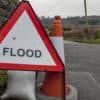Welcome to Part Three of our mini-series exploring the importance of media literacy in the UK.
The UK government has a responsibility to promote media literacy, and as pointed out in Part Two, the government has acknowledged the need for better digital skills education and Ofcom is developing a three-year media strategy.
However, more can be done to support media literacy programmes across society.
The role of media outlets
Media outlets also play an important role in ensuring their content is accurate and transparent.
They should prioritise fact-checking and transparency in reporting. By setting an example, these outlets can guide the public towards more critical engagement with media.
OnTheWight is the only media outlet on the Isle of Wight that has scored 100% with Newsguard, the international news credibility and transparency organisation.
The impact of media literacy on democracy
Media literacy is essential for a functioning democracy. When citizens understand the media’s influence, they can better evaluate political messaging.
Voters are less likely to be swayed by misleading or manipulative campaigns. Informed citizens make better decisions during elections and political debates. Democracy relies on people being able to differentiate between truth and falsehood.
Media literacy ensures that the public remains engaged and well-informed in a meaningful way.
Steps to avoid being misled
- Identify bias in the content you consume. Understand the agenda or perspective of the media outlet or creator.
- Cross-reference information across multiple reputable sources. If the same story appears consistently with similar facts, it is more likely to be accurate.
- Question sensational headlines. These often prioritise clicks over accuracy, so dig deeper before believing the claims.
Read Part One / Part Two | Part Three / Part Four





